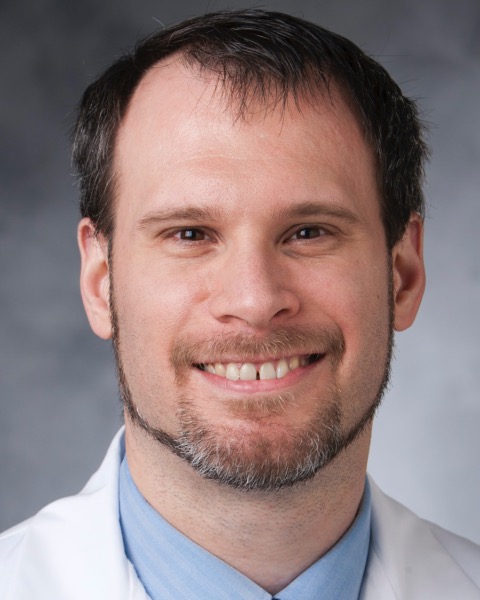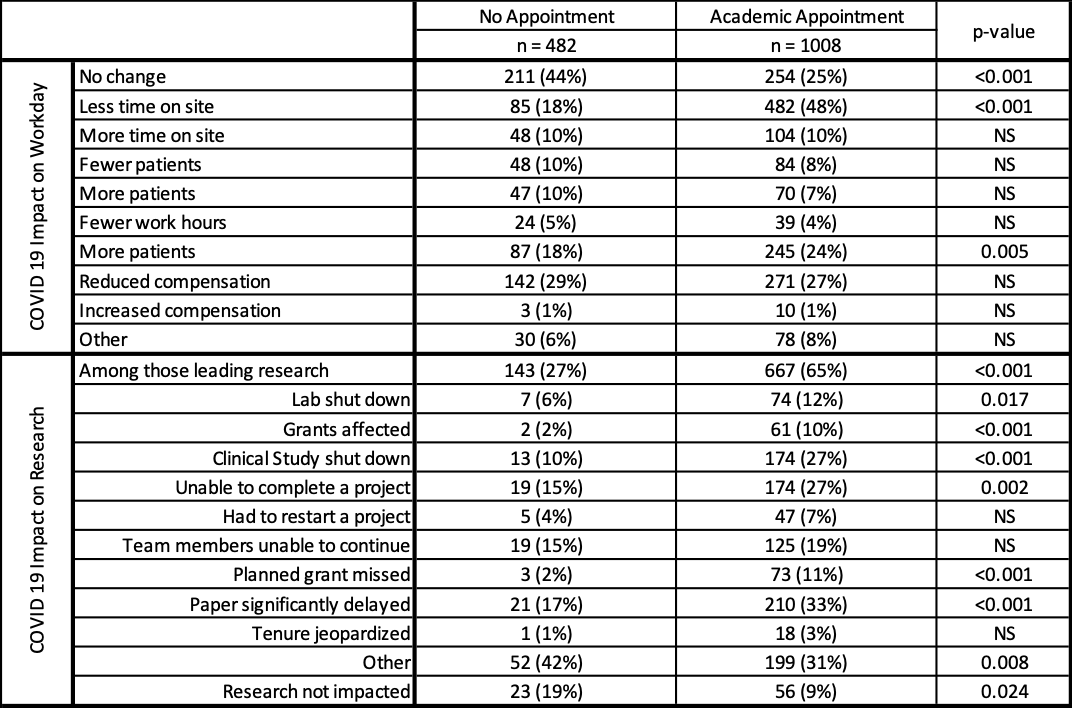Back
Neonatal General
Category: Abstract Submission
Neonatology General 10: ID - Inflammation - COVID
320 - Assessment of the 2020 COVID-19 Pandemic on Neonatologist Workforce
Monday, April 25, 2022
3:30 PM – 6:00 PM US MT
Poster Number: 320
Publication Number: 320.439
Publication Number: 320.439
Eric Horowitz, Boston Children's Hospital, Marblehead, MA, United States; Anisha Bhatia, Northeast Ohio Medical University, Canton, OH, United States; Holly S. Ruch-Ross, American Academy of Pediatrics, Evanston, IL, United States; Lauren Barone, American Academy of Pediatrics, Itasca, IL, United States; Mark L. Hudak, University of Florida College of Medicine - Jacksonville, Jacksonville, FL, United States

Eric Horowitz, MD (he/him/his)
Senior Staff Scientist
Boston Children's Hospital
Marblehead, Massachusetts, United States
Presenting Author(s)
Background: The COVID-19 pandemic has profoundly challenged the United States healthcare workforce across the domains of clinical care, academic endeavors, and quality of life.
Objective: We sought to describe how the COVID-19 pandemic affected professional and personal lives in a national sample of United States neonatologists.
Design/Methods: The American Academy of Pediatrics conducted a voluntary anonymous survey of all board-certified and eligible United States neonatologists from July to November 2021, and received 2113 responses (39% response rate). The survey included questions about professional duties, the effects of COVID-19, and social factors. We report on a subset of neonatologists who responded to the questions about COVID-19. Statistical analysis, including t-test of means, was performed using JMP 16.1.0 by SAS (Cary, NC).
Results: 1737 respondents identified themselves as currently active physicians, of these, 1490 responded to the questions related to COVID-19. Overall, 69% of neonatologists report COVID-19 affected their typical workday. Neonatologists holding academic appointments reported experiencing workday effects at a significantly higher frequency compared to non-academic appointed neonatologists (75% vs 56%; p< 0.001). Specifically, neonatologists with academic appointments more frequently spent less time on site (48% vs. 18%; p< 0.001) yet reported caring for greater numbers of patients than usual (24% vs. 18%; p=0.005). 90% of neonatologists with responsibilities for research projects reported impediments to their work as a direct result of the pandemic. Most (80%) of neonatologists did not feel that their overall career was influenced, but those with an academic appointment were more likely to feel that their opportunities for promotion were diminished (4% vs 8%, p=0.011). The pandemic also had adverse effects on work-life integration. Although a majority reported more time with family, the pandemic introduced new challenges in childcare and eldercare and increased interspousal stress.Conclusion(s): The COVID-19 pandemic significantly altered the professional activities, path to career advancement, and work-life integration of neonatologists. Health systems and policy makers should seek ways to support healthcare workers so that they can continue to provide the best care for patients and continue with scientific discoveries.
Table 1: Respondent Characteristics
Table 2: Impact of COVID-19 on Professional Productivity
Objective: We sought to describe how the COVID-19 pandemic affected professional and personal lives in a national sample of United States neonatologists.
Design/Methods: The American Academy of Pediatrics conducted a voluntary anonymous survey of all board-certified and eligible United States neonatologists from July to November 2021, and received 2113 responses (39% response rate). The survey included questions about professional duties, the effects of COVID-19, and social factors. We report on a subset of neonatologists who responded to the questions about COVID-19. Statistical analysis, including t-test of means, was performed using JMP 16.1.0 by SAS (Cary, NC).
Results: 1737 respondents identified themselves as currently active physicians, of these, 1490 responded to the questions related to COVID-19. Overall, 69% of neonatologists report COVID-19 affected their typical workday. Neonatologists holding academic appointments reported experiencing workday effects at a significantly higher frequency compared to non-academic appointed neonatologists (75% vs 56%; p< 0.001). Specifically, neonatologists with academic appointments more frequently spent less time on site (48% vs. 18%; p< 0.001) yet reported caring for greater numbers of patients than usual (24% vs. 18%; p=0.005). 90% of neonatologists with responsibilities for research projects reported impediments to their work as a direct result of the pandemic. Most (80%) of neonatologists did not feel that their overall career was influenced, but those with an academic appointment were more likely to feel that their opportunities for promotion were diminished (4% vs 8%, p=0.011). The pandemic also had adverse effects on work-life integration. Although a majority reported more time with family, the pandemic introduced new challenges in childcare and eldercare and increased interspousal stress.Conclusion(s): The COVID-19 pandemic significantly altered the professional activities, path to career advancement, and work-life integration of neonatologists. Health systems and policy makers should seek ways to support healthcare workers so that they can continue to provide the best care for patients and continue with scientific discoveries.
Table 1: Respondent Characteristics

Table 2: Impact of COVID-19 on Professional Productivity

